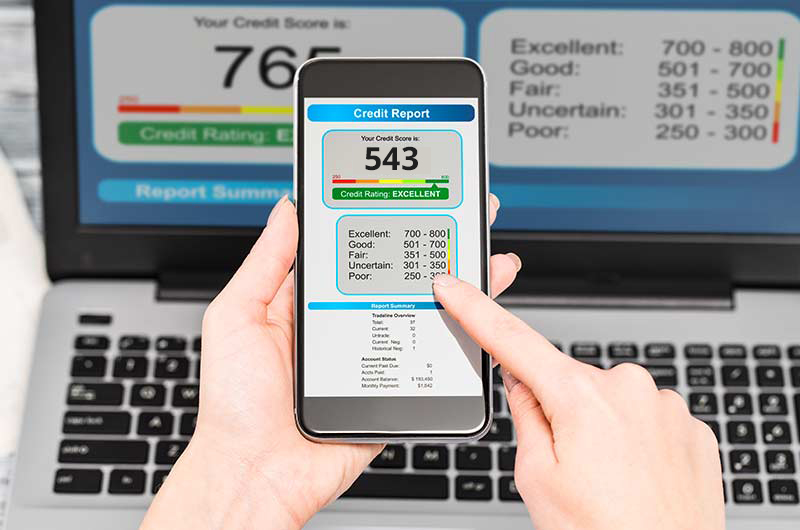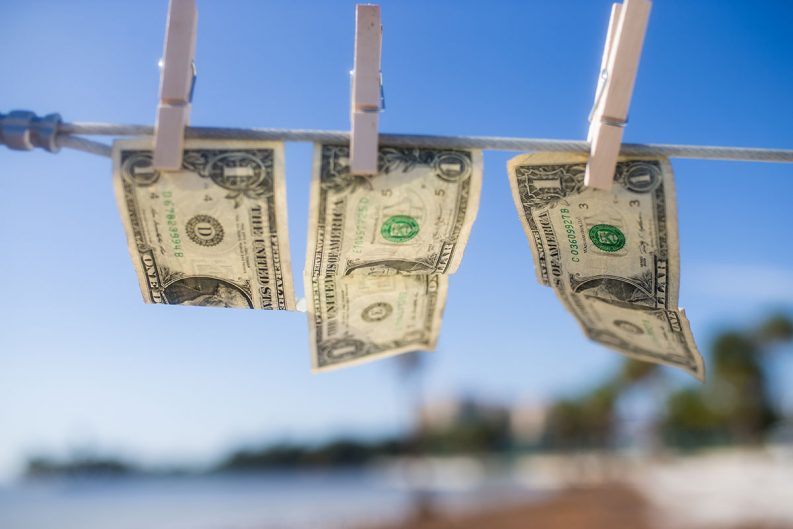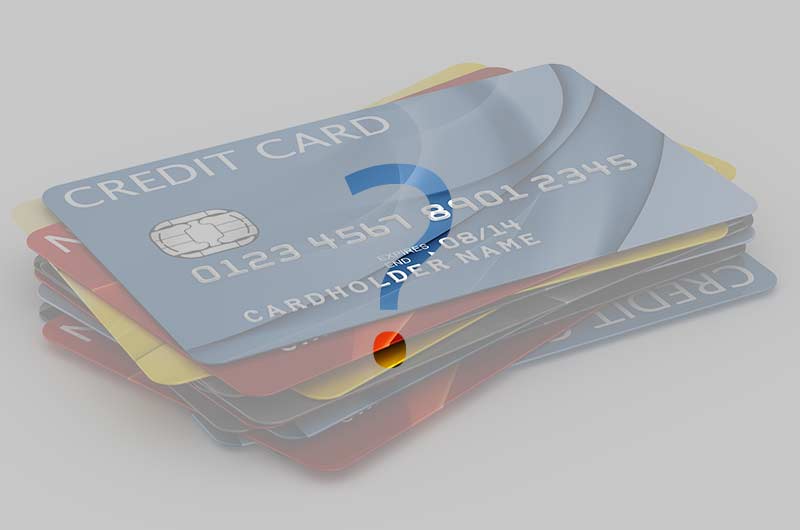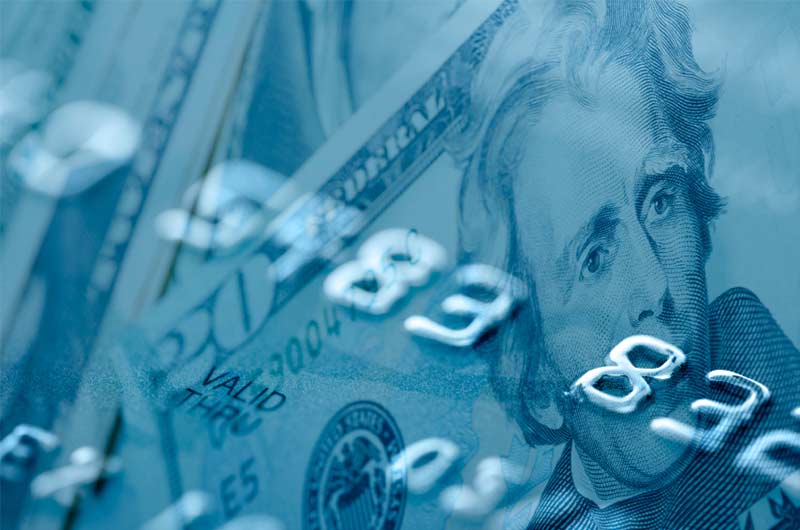Best Secured Credit Cards for Bad Credit
Secured cards are specifically designed to help build the credit scores of people with bad credit, limited credit or no credit history. If you have had credit challenges in the past, getting a secured card could be the first step to take in your credit recovery.

What Are the Best Secured Cards for Bad Credit?
Most secured cards accept applicants with poor credit scores. However, some are better suited for bad credit than others. Building credit will take place if you make your payments on time each month, and the issuer reports to the major credit bureaus: Experian, Equifax and TransUnion. Here are some of the top secured cards for consumers with bad credit, all of which report to the major credit bureaus.
OpenSky® Secured Visa® Credit Card
The OpenSky® Secured Visa® Credit Card does not require a credit check for the application, so you can qualify even if you have bad credit or no credit history. This card has an APR of 17.39% variable and comes with an annual fee of $35. The card also has a very active Facebook community where cardholders can share tips and success stories.
Applied Bank® Secured Visa® Gold Preferred® Credit Card
The Applied Bank® Secured Visa® Gold Preferred® Credit Card is also available with "absolutely no credit check." As long as you have a security deposit between $200 and $1,000, you can qualify for this secured credit card. The APR is 9.99% (fixed), and the annual fee is $48. After the first year, you may be able to increase your credit limit to $5,000.
OakStone Platinum Secured Mastercard®
The OakStone Platinum Secured Mastercard® reports to all three credit bureaus and has a low variable APR of 9.99%. The card supports security deposits of up to $5,000, and there is no minimum credit score required to open an account.
Do Secured Credit Cards Run Credit Checks?
Most secured cards will not run a credit check for approval. You provide the funds for the line of credit on the card. The issuer does not need to worry about losing money by approving you because they are not out anything to open the account. No matter what your past credit challenges may be, you can still open an account and start building credit with the right secured credit card.
Can I Get a Secured Card If I've Filed Bankruptcy?
Yes, you can get a secured credit card if you've filed bankruptcy. You may not be able to do so when you're in the process of filing, but once the bankruptcy case is closed or discharged, you can pursue a secured credit card. Each card has its own exclusions and protocols, so you'll simply need to review the card's bankruptcy terms before you apply.
Do Secured Credit Cards Report to the Credit Bureaus?
Most secured credit cards report to all three credit bureaus, but that is not always the case. The cards featured here on Secured Card Choice report to Equifax, Experian and TransUnion. If you make consistent on-time payments, you should see an improvement in your credit score over time.
There are some secured cards not featured on this site that only report to one credit bureau or do not report payments at all. If you are interested in a different card, make sure you read the fine print closely. Getting a card that does not report to the credit bureaus will not help your credit score, thereby defeating one of the purposes of having the account.
How to Improve a Bad Credit Score with a Secured Credit Card
As we've mentioned, a secured credit card can improve your credit score. It could also hurt your credit score if you do not manage your account properly. Before you set yourself up for a new chain of disappointment, learn what it takes to build credit with a secured card. Here are some important tips for using a secured credit card:
- Understand the card's terms and fees before opening an account. Look at the various fees you might face and how you can potentially avoid them. Does the card have a grace period for making payments? Does it report to all three credit bureaus? Do your research so you can make the most from this experience.
- Pay off your balance in full each month. You must make payments on a secured credit card just like you would for a standard credit card. Ideally, this means paying off the card in full each month. If you pay off your balance each month, you can avoid paying interest on the balance. You can also keep your credit utilization rate low, which is the ratio of how much you owe compared to your total available credit. A low utilization rate shows future lenders that you can manage your money well, and helps boost your credit score.
- Make your payments on time each month. Set calendar reminders for your billing date, or set up automatic payments on your account. On-time payments will help your credit score, while consistently late payments will hurt your score. Make sure you stay on the good side of credit building, even if that means only paying the minimum owed for the month.
- Actively use your card and pay it off. Instead of using your bank's debit card to pay for lunch every day, use your secured credit card. Save the money in your bank account that you would have spent otherwise, and then pay off the card balance each month. This routine will set you up for successful credit management once you upgrade to an unsecured card.
- Don't be tempted into spending more than you can repay. Secured cardholders sometimes get in the habit of spending extra on their card because they view the funds as 'their money.' You can't think of it like that. View your secured credit line like an unsecured credit line that you have to repay. Otherwise, you'll quickly rack up interest charges that do nothing to help your credit.
- Set a line of credit you feel comfortable with. Sure, you can deposit $1,000 or even $5,000 on your secured credit card, but that doesn't mean you should. If you think having those funds available is going to tempt you into frivolous spending, don't put them on your card. Provide a deposit that gives you a chance to build credit without going into debt or falling into bad spending habits. You can always increase the limit once you feel more confident with your finances.
- Learn from your past credit mistakes. What actions in the past led to your bad credit score? What do you wish you could have changed? There is no way to reverse actions from the past, but you can use your mistakes to motivate you moving forward. You know what not to do, so don't do it! You can overcome your previous challenges if you stay focused on your future.
- Don't expect change overnight It is going to take several months for you to see positive changes in your credit score, so do not be discouraged by that. With patience, perseverance, and proper credit card use, you can improve your credit score with a secured card.
The journey starts by finding the right secured card for your needs. Check out the extensive card offers available at SecuredCardChoice.com and choose a card to build your credit score.
Can I Get an Unsecured Credit Card with Bad Credit?
Getting an unsecured credit card with bad credit is tricky, but it is not impossible. There are some cards on the market specifically targeted to bad credit or poor credit scores. These cards typically feature:
- High interest rates
- Low available balances
- High fees
- Little to no grace period (the timeframe where you can avoid interest by paying off your card balance)
There is a much lower chance of qualifying for a bad credit unsecured card than there is qualifying for a secured credit card. Most cardholders are better off opening a secured credit card with a $200 deposit and building their credit over time. If you do this, you can increase your credit limit with additional deposits and continue building your credit with the card.
After 6-12 months of using your secured credit card, you may be able to graduate to an unsecured line of credit. This could include an unsecured card from the same issuer or an introductory card from a different provider. Continue with the same smart money habits you used with your unsecured card, and you may be able to boost your score well into the future.
How to Find the Best Secured Card for You
Now that you know about the best secured cards for bad credit, go one step further. Compare your options to find the best secured credit card for your specific needs. If you plan to carry a balance month to month, find a card with a low interest rate. If you plan to pay off your balance each month, you can get a card with a higher interest rate and lower fees. Evaluate the deposit limits, fee structures, and online account management tools available for each card. Then choose the one that best aligns with your lifestyle and spending habits.
Review the many options available here at Secured Card Choice, and find the card that best suits your overall needs.


